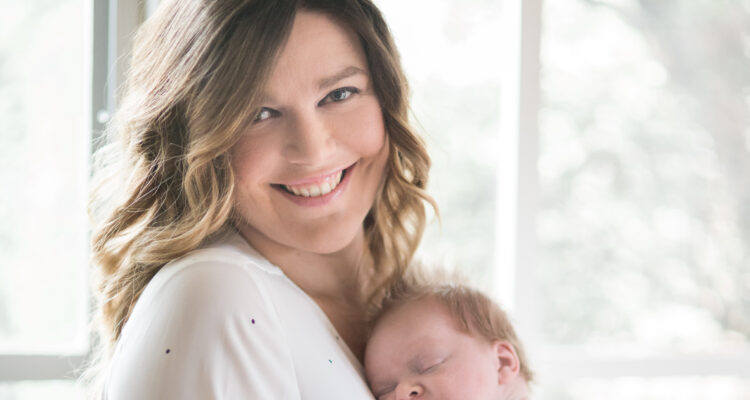Parenting 101**Award Winning Sleep Consultant Shares Top Sleep Tips For Little Ones
There is nothing more disruptive to families, than a child that’s not sleeping. Introducing Georgina Windebank, every parents’ sleep saviour and a qualified naturopath and holistic sleep consultant.
Georgina is the founder of The Holistic Sleep Project which works wonders, by making a significant impact on the lives of families across Australia and internationally. Through her unique blend of naturopathic principles and sleep consulting expertise, she is empowering families to overcome sleep challenges and improve their overall well-being.
Impressively, Georgina has also received a bronze award for health and wellbeing at The Women Changing The World awards in London hosted by Sarah Ferguson, The Duchess of York. Here Georgina, shares her top tips for optimal baby and toddler sleep.
Babies:
- Families need to prioritise their baby’s sleep. Unlike newborns who will often sleep anywhere, they may find this doesn’t happen anymore as they get older. Their sleep is developing so following a solid sleep routine may be necessary after 4 months old. Routines aren’t restrictive! It actually means parents know when they CAN get out socially rather than having no consistency or predictability and an overtired baby to contend with.
- Use a white noise machine for newborns all the way to toddlers. This has several positive functions including helping to link sleep cycles, blocking out external noises and replicating the environment in the womb.
- Incorporate a bedtime routine. This is a series of steps in order of your preference, that cue the child to know that bedtime is coming! It might be something like bath, sleeping outfit, book, song, milk feed and into their cot. This will reduce your baby’s anxiety about sleep, as they were prepared for it.
- Make the room pitch black! Any light poking through the curtains can trigger an early wake in the morning or a premature wake from a nap.
- Introduce a comforter from 7 months old. These are one of the most effective sleep cues! Only use it around sleep time, to indicate it IS sleep time whether that is in the car, cot or pram. Ensure it is breathable fabric and a handkerchief size.
Toddlers:
- Ensure your toddler is having plenty of 1:1 with you and your partner to ensure they are comfortable and safe to sleep through the night without needing additional support. This is really successful to create intention connection and specifically by doing it in their bedroom, it will grow their comfort level in their sleep space. We are redirecting time together in the daylight hours instead of having them wake up overnight, looking for connection.
- Use a night light after the age of 2 years old as fears eg darkness, monsters, being alone can start to creep into their night time sleep.
- Avoid night terrors and nightmares by making sure you have a solid wind down routine at bedtime to calm their nervous systems before bedtime and avoid overstimulation towards sleep times.
- To make sleep easier, forget the devices! The World Health Organisation does not recommend any TV before 2 years old. After 2 years old just 1 hour a day. And I would say, hold out as long as you can because it can contribute to a variety of behavioural and sleep issues. If you have a child with sleep challenges, another aspect which can heighten the issue is overstimulation and they can’t wind down and sometimes the trigger for this are devices used around bedtime.
- Keep them in their cot until they are closer to 3 years old! Once they are out of the cot, they will find it near impossible to STAY in their bed as they lack maturity and impulse control to stay in their bed prior to 3 years old.
- Boundaries! Toddler’s start to push boundaries at different stages and this can occur particularly around sleep at this age. So ensure you set boundaries and stick to them! This may be the bedtime routine, it might be around the amount of books before bed, who puts them to sleep and so on.
Where parents go wrong with trying to get babies and toddlers to sleep?
- The biggest aspect of sleep parents aren’t doing is they are not reaching out for support soon enough when things aren’t going well for weeks, months or even years. The impact of sleep deprivation can affect every aspect of their lives such as their relationships, mental health, energy levels and enjoyment of parenting. No matter how big or small you think the sleep issues are – it’s time to reach out.
- When sleep isn’t going well. Parents usually make BIG changes in the hope that it will “fix” their child’s sleep but it usually perpetuates the issue. Examples of this are, moving toddlers out of their cots into a big bed in the hope that this will solve their sleep issues, cutting nap durations or cutting the nap completely or attempting a sleep technique by themselves when there are so many other elements which need to be fulfilled first (in my holistic approach).
- Not having boundaries around sleep! Children LIKE and need boundaries to reduce anxiety so they don’t fear “what is coming next”. Even in the sphere of sleep we need boundaries! This will mean no guessing about when and if they will go to sleep. They just will! If those limits are not put in place from the beginning, then your child may push them and you may give in because you are so tired! For example, wanting increased amounts of books at bedtime, wanting you to sit/lay with them every time they wake up, coming into your bed every once in a while but now its every night and so on.
- Not ensuring their sleep space is safe. Because they are sleep deprived or not aware of the risks they may make decisions which are not safe. For example, bumpers on the side of cots, using dummy leads in the cot, using blankets in a cot after the child has started to roll or having soft toys in the cot.
- Not prioritising their child’s sleep needs. They aren’t small for very long so having the majority of naps at home or having a regular bedtime is not forever but important to the wellbeing of their child. This will mean naps and overnight sleep will come with less resistance or effort, your child will be happier and well rested which means parenting will be smoother to navigate.
- Believing their child is a “bad” sleeper or hates sleep! This isn’t the case. Any child can be supported to create better sleep with the right approach and correct level of support. If your child isn’t sleeping well, it means something in their environment, routine, connection to their parents or there is an issue with who or what they are reliant on to get to sleep is no longer serving them and these can all be corrected in my holistic approach to baby and toddler sleep.
To find out more about Georgina’s incredible work and book a consultation, visit: www.theholisticsleepproject.com
You can also listen to Georgina’s podcast for more helpful tips: The Holistic Baby and Toddler Sleep Podcast
IG: theholisticsleepproject


Leave a Reply